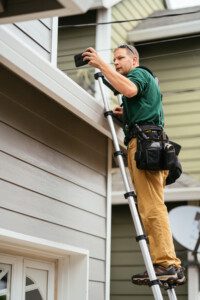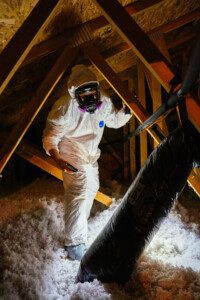Home Inspection – Longview, Washington

Home Inspector – Longview, Washington
You just walked through the front door of a home and it’s love at first sight. Everything appears to be perfect. The large fenced-in backyard, granite countertops, recessed lighting, and large downstairs family room are exactly what you have been searching for. Before you sign on the dotted line, make sure your dream home is as perfect as it looks. A professional home inspection will provide you with valuable information that you need to make a good investment in the house of your dreams.
Why Hire Us For Your Longview, Washington Home Inspection?
When hiring a Longview, Washington home inspector, you want to choose someone that you can trust. Honesty and integrity are important when it comes to home inspection.
We are driven by our mission, which is to help all homeowners have access to high-quality home inspection services, regardless of ability to pay. Since we work towards our mission, our goal when conducting home inspections is to provide useful, honest, and useful information to our customers.
Our Qualifications
- Washington Licensed Home Inspectors
- Members of the International Association of Certified Home Inspectors (InterNACHI)
- Certified by the International Association of Certified Indoor Air Consultants (IAC2) to conduct mold and radon testing
- Infrared Certified ™ Thermographers
- Licensed Structural Pest Inspectors
- Pest and Dry Rot Inspectors
- EPA Certified Lead-Based Paint Renovation Contractors
- Certified Home Energy Inspectors™
What Does A Home Inspection Include?
Our home inspections cover thousands of items. Here is an overview of a few of the things that we cover.
Home Inspections
- Roof – Shingles, skylights, chimneys, vents, and flashings.
- Foundation and structure – Grounds, drainage, walkways, grading, foundation, walls, ceilings, and floors.
- Plumbing – Faucets, fixtures, water heaters, sump pumps, toilets, and showers.
- Electrical – Service panel, light fixtures, smoke and fire alarms, carbon monoxide detectors, GFCI (ground-fault circuit interrupter) outlets.
- Kitchen – Garbage disposal, built-in appliances, trash compactor, exhaust fans, countertops, cabinets.
- Heating, ventilation, and air conditioning – Heating and air conditioning equipment, ductwork and thermostats
Mobile Home Inspections
A mobile home inspection is similar to a full home inspection. However, there are some differences. During a mobile home inspection, we’ll look at the following things.
- Exterior – Outlets, walkways, decks, exterior and storm doors, guardrails, lighting, siding, house, and trim paint.
- Roof – Condition of shingles, gutters, drainage.
- Structural – Foundation wall materials, crawl space, interior walls, ceilings, and floors.
- Electrical – Main panel, switches, outlets, light fixtures, safety equipment (fire and smoke alarms)
- Plumbing – Showers, toilets, drains, water heater.
- Heating, ventilation, and air conditioning (HVAC) – Heating and cooling equipment
- Interior – Condition of interior paints and materials, molding, floors, and carpets.
- Kitchen – Built-in appliances, cabinets, countertops.
Can a Longview, WA Home Inspector Find Everything Wrong With My House?

Home Inspection – Longview, Washington
A full home inspection does not guarantee that every little problem will be uncovered. Many things require additional testing to evaluate. For this reason, we recommend opting for the following inspections.
- Mold testing – Mold can hide behind walls, cabinets, and under floors. It can cause serious structural damage to a home if it is not dealt with. Mold is also a serious health hazard. Although we will let you know if we see signs of excess moisture or mold during a full home inspection, we recommend opting for mold testing, as well. This test can uncover mold that is not visible during a full home inspection. Additionally, we’ll send samples of the mold to an accredited laboratory for analysis. This analysis will identify the type of mold present and the exposure level. We’ll also make suggestions on how to remedy the problem.
- Radon Testing – Radon is a colorless gas that enters homes and buildings through cracks in the foundation and walls. Radon a natural byproduct of decaying radon. When radon decays, it turns into radium and then into radon gas. Radon is a problem because the odorless radioactive gas is strongly associated with lung cancer. What many people don’t know is that radon is the second-leading cause of lung cancer after smoking. Therefore, we recommend that all home sellers and buyers test for radon. We also recommend that homeowners test radon levels every two years. Radon testing is not included with a standard home inspection. A special test is required to determine the levels of radon in the home. Our radon tests are affordable at $150 as an add-on to a home inspection. However, because we want all people to live in a healthy, safe environment, we offer FREE radon tests for those who qualify.
- Oil tank sweep – Before 1975, it was common for homes to be heated with fuel oil. As more homes switched to natural gas, these fuel oil containers were sometimes abandoned underground. These oil containers pose considerable risks to homeowners when abandoned. They can leak, which can result in huge environmental problems and high costs to remediate. Therefore, if you are buying a home, especially one built before 1975, it is a very good idea to have an oil tank sweep. Oil tank sweeps are not included in standard home inspections. That is because they require a review of government databases for evidence of underground fuel oil tanks along with a visual search. We also conduct soil sampling using specialized tools to extract the soil.
- Sewer scope inspection – Most home buyers and homeowners don’t think about their sewer until there are problems. Unfortunately, once problems become apparent in the form of backed-up sewer lines, you could be looking at thousands of dollars in repairs. Since we can’t visually inspect buried sewer lines during a standard home inspection, we recommend adding on a specialized sewer scope inspection. We use a professional-grade camera to go deep into the sewer lines. A sewer scope inspection can uncover cracked and blocked lines, tree roots, and disintegrating pipes.
Contact Us to Schedule Your Longview, WA Home Inspection
It’s fast and easy to schedule your home inspection with us. You can book your inspection 24/7 online using our handy online form. Want to talk to us? Do you have questions about home inspections? Contact us at 1-360-558-7600 or connect with us via email.
